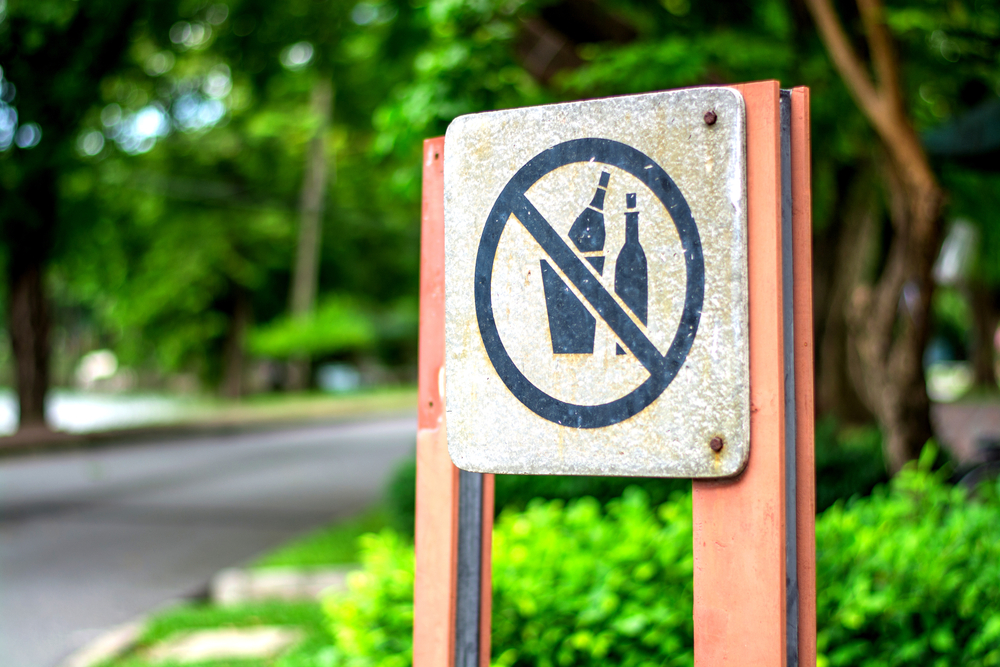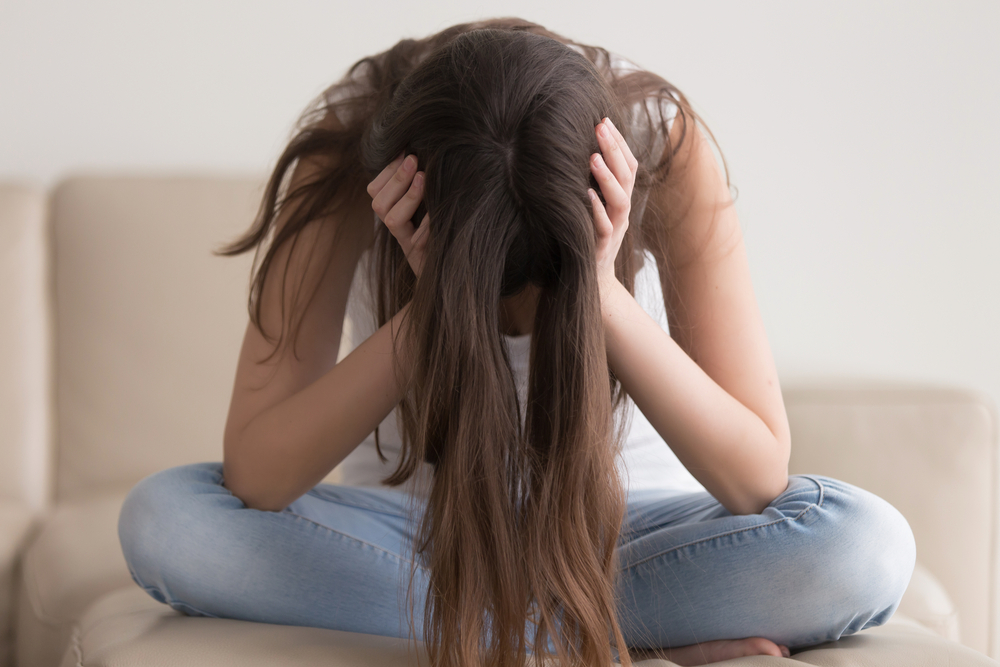Women’s Drug Rehab: Overcoming Addiction in a Supportive Environment
According to the 2019 National Survey on Drug Use and Health for Women, 7.2 million American women reported struggling with substance use disorder (SUD).1 Addiction treatment for women can differ from men’s treatment as women face unique issues around addiction and have different treatment needs. 2

Understanding Addiction in Women
Addiction in women may show up differently than addiction in men. Women face unique challenges such as self-esteem issues, the pressure to be perfect, hormonal fluctuations, pregnancy, breastfeeding, and the responsibilities of motherhood.
Gender Differences vs. Sex Differences
Women face differences as a result of both gender and sex. Gender differences are based on social and cultural constructs around the gender a person identifies with. Sex differences stem from biological factors such as hormones and sex chromosomes.
For example, gender differences may include social pressures and expectations of women. Many women may choose not to seek treatment due to responsibilities such as caring for children or maintaining the household. Sex differences include hormonal fluctuations that affect the way that women metabolize drugs and alcohol throughout their menstrual cycle.
Commonly Misused Substances
Alcohol appears to be the most commonly misused substance for women. Of the women who participated in the 2019 National Survey, 72% of them struggled with alcohol misuse, whereas only 40% struggled with illicit drugs, and 13% struggled with both alcohol and illicit drugs.
Marijuana was the most commonly misused illicit drug, followed by prescription psychiatric medications, cocaine, and hallucinogens. Inhalants, heroin, and methamphetamine were the least commonly reported among women.
Signs and Symptoms of Addiction
Sometimes, substance use disorders can be hard to identify as people have different levels of functioning and ability to hide their substance misuse from loved ones. Some signs and symptoms that you or someone you love is struggling with a substance use disorder include:
Physical Changes
- Sudden weight loss or gain
- Deterioration of physical appearance
- Poor hygiene
- Abnormally small or large pupils
- Bloodshot eyes
- Unusual smells on body, breath, or clothes
- Slurred speech
- Tremors
- Impaired coordination
Emotional and Behavioral Changes
- Unexplainable changes in attitude or personality
- Sudden mood swings
- Anger outbursts, agitation, and irritability
- Periods of unusual hyperactivity, giddiness, or euphoria
- Lack of motivation
- Appearing paranoid, fearful, or anxious with no apparent reason
- Engaging in suspicious or secretive behaviors
- Appetite changes
- Changes in sleep patterns
Social Changes
- Drop in attendance and/or performance at work or school
- Frequently getting into trouble (legal issues, fights, accidents, etc.)
- Sudden changes in friends, hobbies, or hangout places
- Unexplained financial problems
- Continuing to use substances even though it causes relationship problems
Benefits of Women’s Rehab Programs
Seeking addiction treatment isn’t easy. But, it is often the first step toward recovery. There are many benefits of women’s rehab programs, including:
Sisterhood and Support
Attending a women’s rehab center can give women a sense of sisterhood and peer support. It is often helpful to connect with other women who understand your struggles and can support your recovery journey.

Trauma-Informed Care
Many people with substance use disorders have experienced trauma in childhood or adulthood. More than half of women seeking addiction treatment report experiencing one or more traumas in their lifetime. Furthermore, many patients who seek inpatient addiction treatment have a history of post-traumatic stress disorder.
One of the benefits of attending a women’s rehab center is the access to trauma-informed care that will help you address and heal underlying traumas that may be at the root of addictive behaviors.
Empowerment and Self-Care
Women’s rehab programs are empowering and uplifting. They promote healthy self-worth and self-esteem and teach women healthy coping mechanisms and self-care strategies. Many women with substance use disorders are used to turning to drugs or alcohol to cope with stress. Rehab programs will teach you how to cope with stress in healthy, constructive ways and support you in building a self-care practice.
Building a Healthy Support System
Having a healthy support system is a key factor for long-term recovery. Many people enter into addiction treatment without much healthy relational support. Friends and family may also use substances, making them an unsafe connection following recovery. The patient’s substance use may have hindered other relationships and may need extra care and attention to repair and rebuild the relationship.
Rehab can help you build and nurture healthy relationships to support you during and after your recovery.
Relapse Prevention
Addiction is considered a chronic, relapsing brain disorder. Because relapse is so common, it is important to be prepared for a possible relapse and take steps to prevent it. Attending a women’s rehab center can provide you with strategies to address triggers for use and how to cope with high-risk situations that may lead you to relapse.
Women’s Rehab Treatment Options
There are many different types of women’s substance misuse treatment. No single program is right for everyone. Each person has unique treatment needs and may benefit from different types of rehab programs.
Inpatient vs. Outpatient Treatment
Inpatient treatment takes place in a residential facility where the patient resides for a designated period, typically ranging from 30-90 days. In some cases, patients may stay six months to a year or longer.
Outpatient rehab programs offer similar treatment modalities as inpatient rehabs. However, care takes place on a part-time basis while the patient continues to reside at home throughout the treatment process.
People with more severe addictions or a history of relapse or co-occurring substance use or mental health disorders may benefit more from inpatient treatment. Outpatient programs may better suit people with families, work, school, or other duties outside of rehab so they can continue fulfilling their responsibilities throughout treatment.
Intensive outpatient programs (IOPs) are also available, which provide more intensive treatment, usually at least three days per week while the patient continues to reside at home. Research has shown that pregnant women are more likely to stay in intensive outpatient rehab programs if they provide services such as child care, vocational training, and parenting classes.

Individual vs. Group Therapy
Women’s rehab programs will typically offer a combination of both individual and group therapy.
Individual therapy is one-on-one counseling to help a person address triggers for substance use, underlying traumas and mental health conditions contributing to use, and to acquire healthy coping skills to manage cravings and prevent relapse. Cognitive-behavioral therapy (CBT) and motivational interviewing (MI) are two common therapeutic approaches used for substance use disorder.
Group therapy is typically provided daily at inpatient rehab. Group therapy provides patients with the support of peers who can understand and relate to their struggles with addiction.
Holistic Therapies
A variety of holistic therapies may be offered in women’s rehab programs. Each treatment center is unique, so you will want to check with each rehab facility to determine which therapies are offered.
Some common holistic therapies include:
- Art therapy.
- Yoga and mindfulness.
- Neurofeedback.
- Massage.
- Acupuncture.
- Spiritual and religious therapies and practices.
- Nutrition support.
Finding the Right Women’s Rehab Program:
When seeking women’s addiction treatment, it’s important to find the right rehab program for you or your loved one.
Factors to Consider
Some important factors to consider when choosing a women’s rehab program include:
- Severity of addiction: Depending on the addiction severity, an inpatient or outpatient rehab program may be more appropriate
- Treatment approaches: Each rehab center offers unique treatment modalities. It is important to choose a program that aligns with your values and unique needs.
- Amenities: Each treatment program offers unique amenities, such as luxury amenities, nutrition support, corporate and business amenities, massage, acupuncture, religious support, etc.
- Gender-specific programs: Attending a women’s rehab center may benefit you more than traditional rehab programs. You will have feminine support, resources specific to women and mothers, and treatment modalities and amenities catered to women’s needs.
Resources for Finding Women’s Rehab Programs
There are many resources available to help you find treatment programs and services for women in recovery. These include:
- Substance Abuse and Mental Health Services Administration (SAMHSA): SAMHSA provides a national helpline that is available 24/7, 365 days a year to provide treatment referrals and information.
- She Recovers: She Recovers is a non-profit recovery movement to empower women in recovery to heal themselves and help other women do the same. They connect women through both in-person and virtual meetings and community networks.
Resources
- Substance Abuse and Mental Health Services Administration. (September 2020). 2019 National Survey on Drug Use and Health: Women.
- National Institute on Drug Abuse. (April 2020). Substance Use in Women Research Report.
- Greenfield, S., Back, S., Lawson, K., et al. (June 2010). Substance Abuse in Women. Psychiatric Clinics of North America. 33(2): 339-355.
- Substance Abuse and Mental Health Services Administration (SAMHSA). (April 2023). Mental Health and Substance Use Co-Occurring Disorders.
- Substance Abuse and Mental Health Services Administration (SAMHSA). (2014). Trauma-Informed Care in Behavioral Health Settings. Treatment Improvement Protocol (TIP) Series. No 57.
- Menon, J. & Kandasamy, A. (February 2018). Relapse Prevention.Indian Journal of Psychiatry. 60(4): S473-S478.
- Substance Abuse and Mental Health Services Administration. (April 24, 2023). Types of Treatment.
- National Institute on Drug Abuse. (January 2018). Principles of Drug Addiction Treatment: A Research-Based Guide (Third Edition).
More Specialty Rehab Programs

Alcohol Rehab
Addiction Treatment for Alcoholism: What to Expect From Rehab Alcohol abuse and alcohol dependency, or addiction, are common drug issues …

Couples Rehab
Couples Rehab Programs: Recovering Together Programs provide specialized treatment to help partners struggling with alcohol or substance use. They aim …

Depression & Addiction
Dual Diagnosis Programs: The Benefits of Rehab for Depression Mental health conditions, such as anxiety and depression are common among …